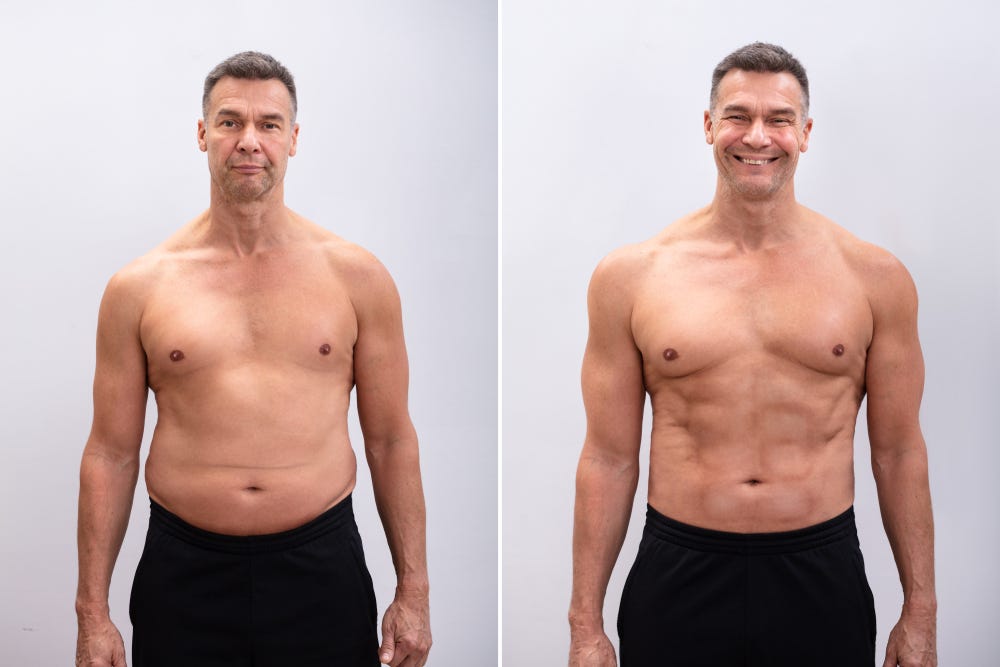What is Hormone Replacement Therapy (HRT) for Men? Exploring The Benefits and Risks

Hormone Replacement Therapy (HRT) for men is a medical intervention designed to address hormonal imbalances that may occur as a result of aging or other health conditions.
While traditionally associated with women undergoing menopause, men can also experience hormonal changes that affect their well-being. HRT for men aims to restore hormonal balance, alleviate symptoms, and improve overall quality of life.
The Role of Hormones in Men
Hormones play a crucial role in various physiological functions within the male body. Testosterone, the primary male sex hormone, is responsible for the development of male characteristics, such as facial hair, deep voice, and muscle mass. As men age, testosterone levels tend to decline, leading to a range of symptoms that can impact physical, mental, and sexual health.
Common Symptoms of Hormonal Imbalance in Men:
1. Fatigue and Low Energy: A decrease in testosterone levels can result in fatigue, reduced energy levels, and a general sense of lethargy.
2. Loss of Muscle Mass and Strength: Testosterone is essential for maintaining muscle mass and strength. Reduced levels can lead to muscle atrophy and weakness.
3. Changes in Mood: Hormonal imbalances may contribute to mood swings, irritability, and even depression in some cases.
4. Sexual Dysfunction: Testosterone is crucial for libido and sexual function. Low levels can lead to reduced interest in sex, erectile dysfunction, and other sexual health issues.
5. Decreased Bone Density: Testosterone plays a role in maintaining bone density. Low levels can contribute to osteoporosis and an increased risk of fractures.
Understanding Hormone Replacement Therapy for Men
HRT for men involves supplementing or replacing hormones, primarily testosterone, to restore balance and alleviate symptoms associated with low hormone levels. The therapy is tailored to each individual’s needs based on their symptoms, medical history, and hormone levels.
Methods of Administration
1. Intramuscular Injections: Testosterone can be administered through intramuscular injections, typically given every 1-2 weeks.
2. Topical Gels or Patches: Topical gels or patches applied to the skin are another common method. These allow for a steady release of hormones into the bloodstream.
3. Pellets: Small hormone-containing pellets are implanted under the skin, providing a slow and steady release of hormones over several months.
Benefits of Hormone Replacement Therapy (HRT) for men
Hormone Replacement Therapy (HRT) for men has gained prominence as a viable intervention to address hormonal imbalances associated with aging or health conditions. Here is what HRT do to the male body:
1. Improved Energy and Vitality: One of the most notable benefits of HRT for men is the restoration of testosterone levels, which can result in a significant improvement in energy levels and an enhanced sense of vitality. Testosterone is intricately linked to energy metabolism, and its decline with age often correlates with feelings of fatigue and reduced vigor.
Testosterone influences the production of adenosine triphosphate (ATP), the energy currency of cells. As testosterone levels decrease, the body may experience a decline in energy production, leading to fatigue and a general sense of lethargy. HRT seeks to address this by restoring testosterone to optimal levels, potentially revitalizing the individual and enabling them to engage in daily activities with increased enthusiasm.
Moreover, improved energy levels can have a positive cascading effect on various aspects of life, including work productivity, physical activity, and overall quality of life. Individuals undergoing HRT often report feeling more alert, focused, and ready to tackle the challenges of daily life.
2. Enhanced Sexual Function: Sexual health is a crucial aspect of overall well-being, and testosterone plays a pivotal role in maintaining optimal sexual function in men. HRT can have a profound impact on various aspects of sexual health, including libido, erectile function, and overall sexual satisfaction.
Libido, often referred to as sex drive, is influenced by testosterone levels. As testosterone declines, men may experience a decrease in sexual desire. HRT aims to restore testosterone to levels that support a healthy libido, rekindling interest in sexual activities.
Erectile function is also closely tied to testosterone levels. Testosterone contributes to the dilation of blood vessels in the genital region, ensuring an adequate blood supply for achieving and maintaining an erection. HRT can positively influence erectile function, helping men overcome issues related to impotence or difficulties in sustaining erections.
Additionally, overall sexual satisfaction is often reported to improve with HRT. The restoration of hormonal balance contributes to a more positive sexual experience, fostering intimacy and strengthening relationships.
3. Muscle Mass and Strength: Testosterone is a key factor in the maintenance and development of muscle mass and strength. As men age and testosterone levels decline, there is a natural tendency for a decrease in muscle mass and strength. This phenomenon is commonly referred to as sarcopenia, and it can impact mobility, physical performance, and overall functional capacity.
HRT for men includes testosterone replacement, which can counteract the effects of age-related muscle loss. Testosterone promotes protein synthesis in muscle cells, facilitating the growth and maintenance of lean muscle mass. Moreover, it enhances the production of growth hormone, further contributing to muscle development.
Individuals undergoing HRT often report an increase in muscle mass, improved muscle tone, and enhanced strength. This not only has aesthetic benefits but also plays a crucial role in supporting overall physical health and functionality.
4. Mood Stability: Hormones, including testosterone, play a significant role in regulating mood and emotional well-being. Low testosterone levels have been associated with mood swings, irritability, and even depression in some cases. HRT seeks to address these mood-related symptoms by restoring hormonal balance and promoting emotional stability.
Testosterone influences the production and function of neurotransmitters, including serotonin and dopamine, which play key roles in mood regulation. When testosterone levels are suboptimal, the delicate balance of these neurotransmitters may be disrupted, leading to mood disturbances.
HRT for men can contribute to improved mood stability, reducing irritability and enhancing emotional resilience. Many individuals undergoing HRT report a more positive outlook on life, increased motivation, and a greater capacity to cope with stress.
It is important to note that while HRT can have positive effects on mood, individual responses may vary. Mental health considerations should be thoroughly discussed with healthcare providers, and individuals with pre-existing mental health conditions should be monitored closely during HRT.
5. Bone Health: Maintaining optimal testosterone levels is crucial for preserving bone health in men. Testosterone plays a multifaceted role in bone metabolism, influencing both bone formation and resorption. As men age and testosterone levels decline, there is an increased risk of developing osteoporosis, a condition characterized by weakened and brittle bones.
Testosterone promotes the activity of osteoblasts, cells responsible for bone formation. Additionally, it inhibits the activity of osteoclasts, cells responsible for bone resorption. This delicate balance ensures the continuous renewal and maintenance of bone density.
HRT for men, by restoring testosterone levels, helps mitigate the risk of osteoporosis and fractures associated with bone fragility. Maintaining strong and healthy bones is essential for overall mobility, reducing the likelihood of fractures and enhancing the individual’s quality of life.

Considerations and Risks
While HRT for men can offer numerous benefits, it is essential to consider potential risks and side effects. These may include fluid retention, acne, changes in cholesterol levels, and an increased risk of certain cardiovascular conditions. It is crucial to undergo HRT under the supervision of a qualified healthcare professional who can monitor hormone levels and adjust treatment as needed.
Conclusion
Hormone Replacement Therapy for men offers a holistic approach to addressing the multifaceted impacts of hormonal imbalances associated with aging or health conditions. The benefits extend beyond physical aspects, encompassing improvements in energy levels, sexual function, muscle mass and strength, mood stability, and bone health.
Individuals considering HRT should engage in thorough discussions with healthcare providers to assess the appropriateness of the therapy for their specific needs. Monitoring hormone levels and adjusting the treatment plan as needed is crucial to achieving optimal results while minimizing potential risks.
As our understanding of hormonal influences on men’s health continues to evolve, HRT remains a valuable tool in promoting overall well-being and enhancing the quality of life for those experiencing the effects of hormonal imbalances.





